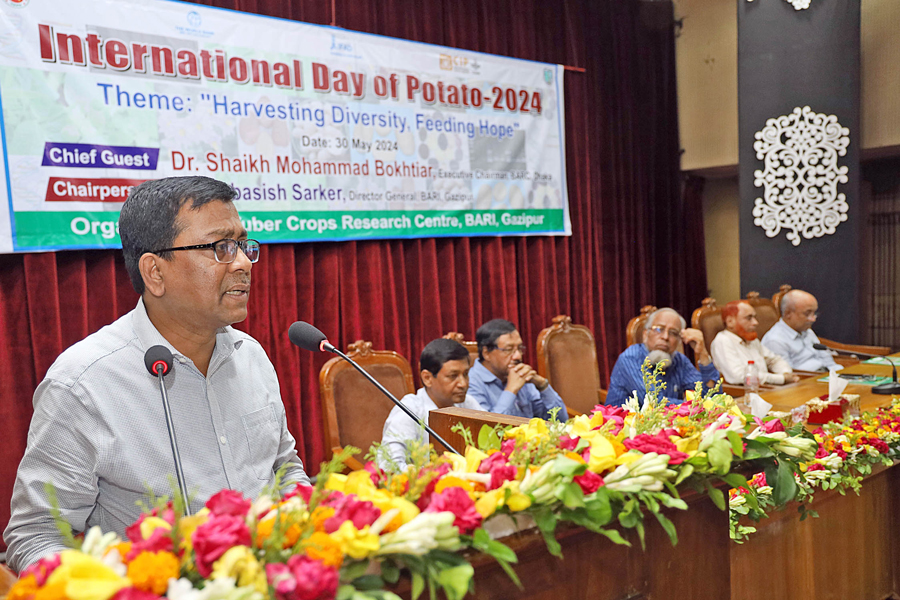Saif
Senior Member
- Messages
- 14,314
- Reaction score
- 7,554
- Origin

- Residence

- Axis Group

Source
:
https://bari.gov.bd/
History
BARI has a long historical background of its own. The emergence of the Institute in its present form has occurred through a number of changes starting from simply a sub-ordinate status under the Department of Land Records in the then Bengal. On the recommendation of the Famine Commission in 1880, the Bengal Department of Agriculture was established as a sub-ordinate part of the Department of Land Records in the then Bengal. In 1906, Lord Curzon, the then Vice Roy of India had granted separate status to the Bengal Department of Agriculture and in the same year, a nuclear agricultural research laboratory under this department was established at Tejgaon, Dhaka. In 1908, an experimental station what has become known as Dhaka Farm was established on an area of 161.20 hectares of land. This Dhaka Farm was the predecessor of BARI and some other research institutes. Establishment of Dhaka Farm offered a good scope for conducting research in the field. In 1947, Bengal Department of Agriculture was renamed as East Pakistan Department of Agriculture. The two constituent divisions of the department were Research and Extension. In 1962, there was a severe blow to agriculture research when the land of Dhaka Farm was acquired for establishing Second Capital (today called Sher-e-Bangla Nagar). In 1968, two separate directorates were established - one was Directorate of Agriculture (Extension and Management) and the other was Directorate of Agriculture (Research and Education).The Directorate of Agriculture (Research and Education) was mostly concerned with research. This Directorate as well was responsible for the management of Bangladesh Agricultural Institute (BAI) at Sher-e-Bangla Nagar, Dhaka. Later in eighties and nineties, two other agricultural colleges, one in Patuakhali and the other in Dinajpur, were established. These two agricultural colleges were also administered by BARI until these became universities. In 1971, the former provincial organization took on national responsibilities. Like many other sectors, agriculture as well inherited poor manpower and insufficient administrative set ups. Therefore, it was rightly thought to have established a coordinated and comprehensive research and some major decisions were taken up in 1973. Another important development in the year was the Presidential Order No. XXXII that helps strengthen and reconstitute agricultural research organizations and system in the country. Upon subsequent developments of research institutions led to further restructuring. In 1976, through the Presidential Order No. LXII, the Bangladesh Agricultural Research Institute (BARI) was emerged as an autonomous and effective research organization following the dissolution of the Directorate of Agriculture (Research and Education) with sufficient operational flexibility, structural modification, and improvement of regional and sub-stations.

